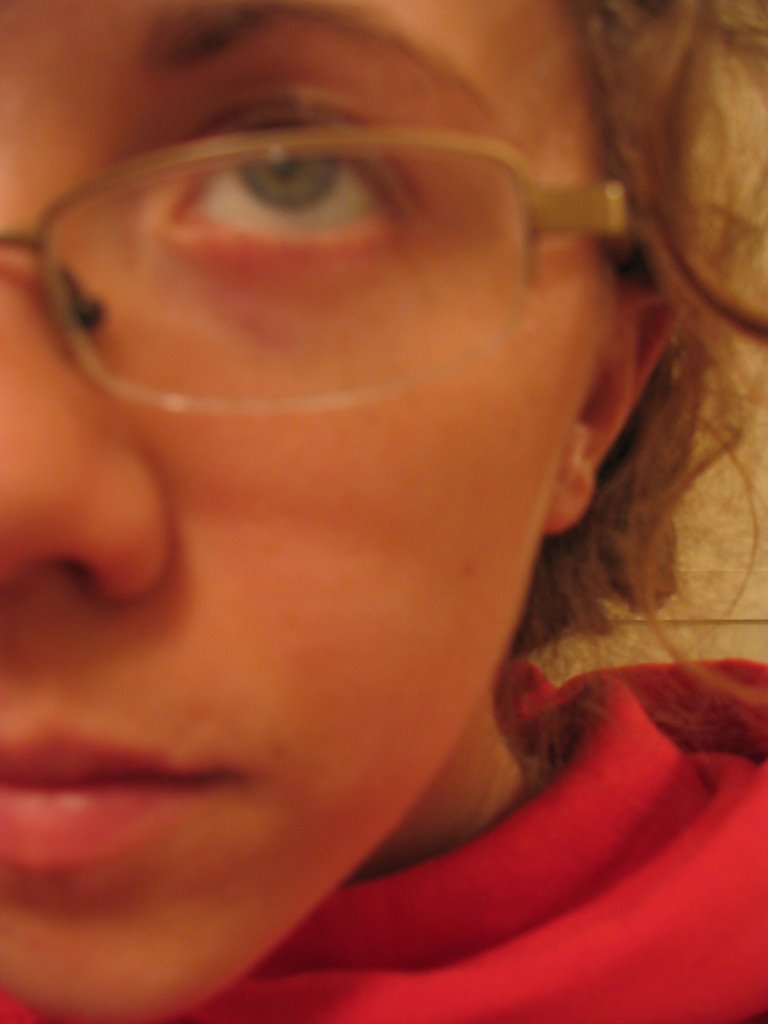Today in one of my 'selectives'--sort of "extra" cool little classes that you take on the basis of interest rather than...how do you say?...requirement--we had several presenters speak on mental health services in St. Louis, and on the failings of infrastructure and policy in the American mental health system generally. There was also a discussion beforehand (with the 'coursemaster'--I love that term; it makes me think they should be wearing wizard robes and brandishing a staff, shouting, "Behold, I am the coursemaster!") on the stigma associated with mental illness, and the extent to which that's a barrier to people who would otherwise benefit from mental health services.
Stigma. The word itself means 'mark.' "Stigmata" are the markings of the crucifixion; someone with a contract on his head is a 'marked man'; Cain was stigmatized, marked, after he killed his brother Abel. Believe it or not, there wasn't always such a stigma attached to madness in Western society (I say madness only because that's what it was called back then; there are no medieval texts on 'mental illness.' Trust me, I wrote several loooong papers on this in the process of getting a German lit degree in my former life as a student of the humanities). Sure, some societies still thought that the mentally ill were possessed by demons, but an equally probable explanation was that the individual had been touched by God. Craziness was actually a good deal better tolerated then (by which I mean during the Middle Ages/Renaissance--read Michel Foucault's fabulous book "Madness and Civilization" to see what I mean). Then again, everyone and their dog had neurosyphilis back then, so maybe the bar for psychiatrically normal was a little lower, too.
Now, of course, psychiatry works with the laudable goal of alleviating human suffering; it also (sometimes) works with the much less laudable goal of making everyone maximally productive and optimally functional within the confines of a society that I think most enlightened and sane individuals would agree is inherently crazy-making...and while there have been some shifts in attitude even in the last twenty years (celebrities can speak frankly about substance abuse problems and battles with postpartum depression; mainstream sitcoms feature characters on antidepressants) there's still a lot of work to be done when it comes to acceptance of mental health issues.
The last time I was getting my car fixed (I always take it to the same shop--the owner is the father of a friend I had in elementary school) I mentioned I was going to medical school, and that I hoped to become a psychiatrist. My friend's dad took this as an invitation to expound on the virtues and failings of psychiatry as an institution, and more specifically the ways he saw psychiatric diagnoses as misplaced--as attempts to excuse moral deficiency or dodge responsibility:
"I think bipolar disorder is just another way of saying someone doesn't want to take responsibility for their actions...that they're immature."
I literally didn't know what to say, and not just because I'm (medicatedly) bipolar myself. It's that sort of attitude, that refusal to recognize that a disease is no less real because it manifests in the brain rather than in the pancreas or heart, that makes medical faculty and students deride psychiatrists as "not real doctors." That's the attitude that keeps a man from going to his physician with his suicidal ideations, for fear of being thought weak; that makes someone push and push and push themselves, a la Sisyphus, to run the mental equivalent of a marathon without pausing to consider that their anxiety or depression is the mental equivalent of a broken leg, and needs treatment equally as urgently. All right, I recognize that last sentence was awkward and clunky, and that's my cue to go to bed.
Monday, October 20, 2008
Subscribe to:
Post Comments (Atom)

No comments:
Post a Comment